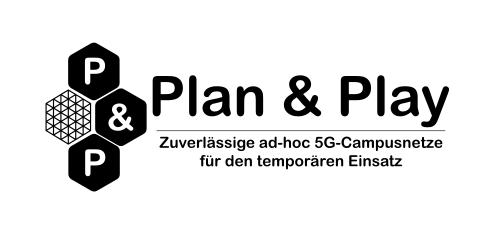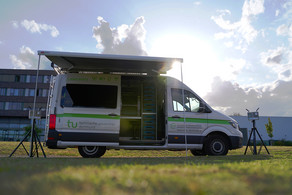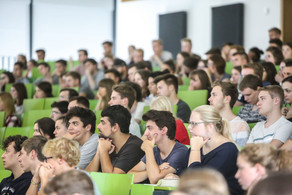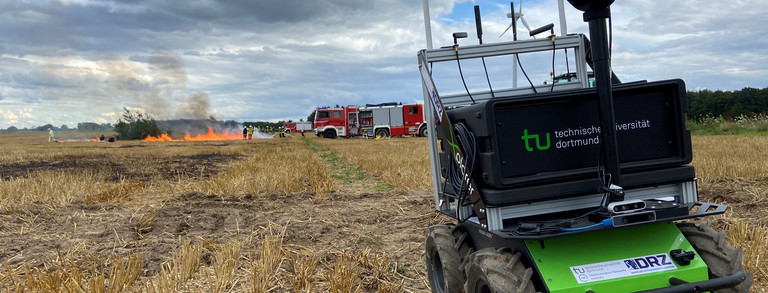Plan and Play - Reliable ad-hoc 5G campus networks for temporary deployment
In addition to the much-discussed reference use case of stationary 5G campus networks, 5G campus networks for temporary use will also be of very great interest in the future whenever extremely demanding local requirements have to be met by the communications network. One example is major international events (Formula 1, America's Cup), where large amounts of data are required for event operations as well as for "live" audience engagement with low latencies and high reliability. Non-stationary, ad-hoc 5G network operation is also imperative in the field of automated intralogistics for the continuous adaptation of reliable network solutions to very rapidly changing application environments. The resulting challenges for demand-oriented planning and self-configuration capability of the network are to be addressed within the framework of the Plan & Play project, which is funded by means of the Federal State NRW by the Ministry for Economic Affairs, Innovation, Digitalization and Energy (MWIDE) as part of the 5G.NRW funding competition. The consortium consists of Riedel Communications, Fraunhofer IML and PIDSO in addition to consortium leader TU Dortmund.
Project duration: 01.01.2021 - 31.12.2023

Core innovation 1 - PLAN: Development of AI-based automated network planning
The first core innovation of the present project is based on the first version of the so-called 5G Campus Network Planner, which was developed by the Plan & Play consortium leader TU Dortmund within the Competence Center CC5G.NRW. The introduced web-based campus network planner is to be extended to a full-fledged network planning tool for temporary ad-hoc 5G campus networks, so that potential users are effectively supported in the detailed determination of the required network infrastructure. The network planning functions to be used build on state-of-the-art online learning algorithms and will be tested and optimized in two disjoint application areas as part of an agile research process in interaction with the "Play" project segment. For this purpose, a machine learning method based on reinforcement learning is used, which can automatically generate network models (on-the-fly) in a very short time. The planning quality to be maintained is made possible by a step-by-step validation of different real environments.
Core innovation 2 - PLAY: Enhancement of 5G solutions for temporary deployment
The network planning functions to be used are based on the latest algorithms for online learning by means of reinforcement and are being tested and optimized in two disjoint application fields as part of an agile research process in interaction with the "Play" project segment. The project partner Riedel exemplarily considers the application for large events with highest demands on communication services. Due to Riedel's existing development expertise for 5G systems, adaptations and additions to the 5G system technology that go beyond or ahead of the standard are planned. The project partner Fraunhofer IML, on the other hand, is analyzing a highly automated intralogistics scenario in which the high-speed Loadrunner platforms presented at the German Digitalgipfel 2019 are used in dynamically changing intralogistics scenarios and therefore require the planning algorithms to be applied over and over again.
Core contributions of the Communication Networks Institute (CNI)
In addition to supporting the requirements analysis and system design for ad-hoc 5G campus networks, the CNI is primarily responsible for the development and application-oriented validation of the AI-based online network planning tool using reinforcement learning, as well as for the development of an automated application to the Federal Network Agency (Bundesnetzagentur). In addition, the CNI provides significant support in the further development and integration of existing 5G solutions for temporary use, as well as in the continuation and innovation transfer with regard to the achieved work results.
This project is funded by means of the Federal State NRW by the Ministry for Economic Affairs, Innovation, Digitalization and Energy (MWIDE) under the Funding ID 005-2008-0047.







